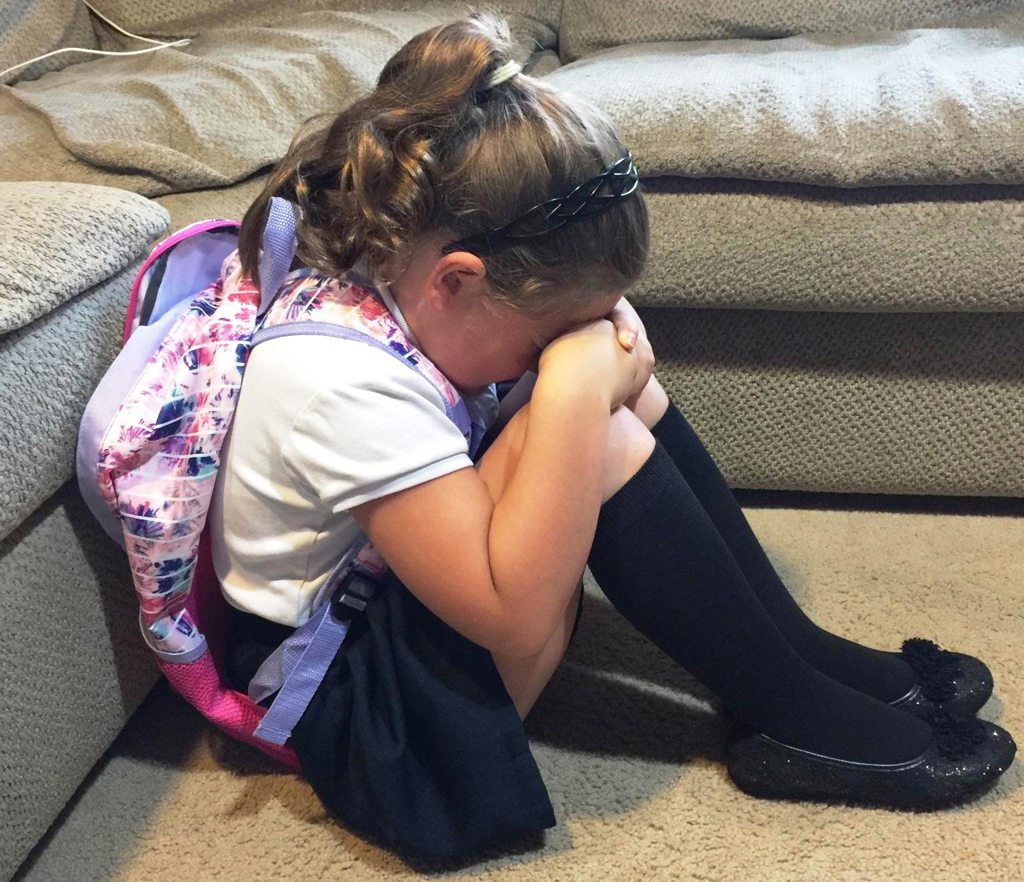
Back to School Anxiety
As summer comes to an end, students and parents across the region are preparing for the start of a brand new school year. Stores are filled with families in search of new clothing, backpacks and supplies. Teachers are busy planning lessons and organizing classrooms in anticipation of the new year ahead. The countdown has begun, and while many young people see this as an exciting time full of possibility, many others struggle through the weeks leading up to the start of school as they deal with stress and anxiety.
Back to school time often brings a surge in admissions of children with behavior problems, including anxiety, according to Dr. Edgar Gantalao, child psychiatrist at Penn Highlands DuBois Behavioral Health Services. This facility, located at 635 Maple Avenue in DuBois, provides child and adolescent behavioral health services for the Penn Highlands Healthcare system.
“School is the number one stressor indicated by the young people I see,” said Gantalao. “This includes worry about making friends, being bullied, meeting a new teacher or even homework assignments they may receive.”
This worry can increase significantly for students preparing for a new school. Whether students are new to the area or if they are entering middle school or high school, these transitions can be a source of stress, and many young people need help to cope with these changes.
Gantalao recommends that parents and caregivers help prepare students for the transition into the new school year by developing routines. “Establishing a school year routine can be very helpful,” he said. “Set bed times and practice following them for one or two weeks prior to starting school. Most students are used to staying up later during the summer months, and they aren’t likely to wake up early.”
For students dealing with a transition, Gantalao recommends taking them to visit the school when possible. For a new high school or middle school student, you could schedule a time to show them to their locker or even help them familiarize with the best route to get to each class. For students entering a new elementary school, schedule a tour of their new classroom or spend time playing at the school’s playground if possible to help them feel comfortable with their new surroundings.
Preparation is essential to help ease a child’s concerns about heading back to school. A lot of worry comes from feeling unprepared. Gantalao recommends that you make sure your student is ready. “Don’t wait to get them the items they may need, establish solid routines with a set bedtime and begin to limit the amount time spent using electronics or video games,” he said.
Attending orientations and other events held at the school are also very helpful. Allowing students a chance to meet their teacher before school begins can boost their confidence and help ease worries they may have. During these events, students can learn a lot about the daily routines of the classroom as well as the expectations and responsibilities that will be delegated to them throughout the year. Many students struggling with back to school anxiety are concerned with the “unknowns,” so empowering them with knowledge can do a lot to ease their mind.
As the first day of school approaches, students may also begin to worry about their friendships. In situations where a student has moved or spent the majority of their summer away from their school friends, they can be worried that the friendships of the previous year may not continue. Parents and caregivers of children who are feeling this way should try to arrange play dates with school friends or seek opportunities for their children to spend time with their peers.
No matter what your child is worried about, Gantalao said the most helpful advice he can offer is simple. “Listen to your kids,” urged Gantalao. “Don’t disregard what they say. Validate their concerns and offer them reassurance.” When young people are truly heard and their worries aren’t brushed off or downplayed, it can be a huge step toward overcoming those concerns.
In most cases, back to school anxiety or jitters will diminish over the course of a few weeks. If you notice that your child’s anxiety is not improving, if it is intense, frequent and interfering with daily activities, it may be time to seek clinical intervention.
For more information about behavioral health services for children and teens, visit www.phhealthcare.org or call Penn Highlands DuBois Behavioral Health Services at 814-375-4862.

